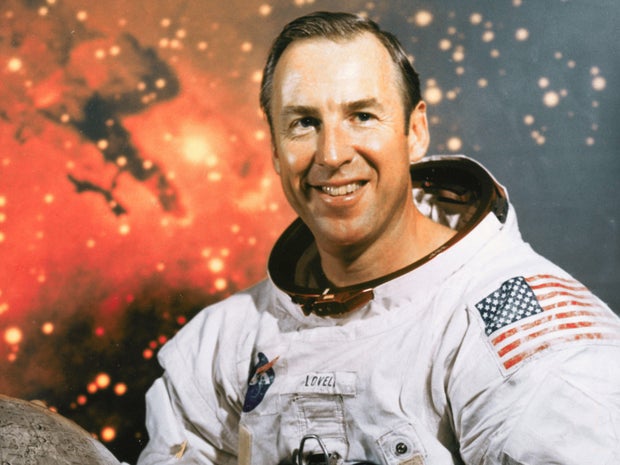Last Voyage of a Space Pioneer: Captain James A. Lovell Passes at 97
Iconic Commander of the ‘Successful Failure,’ Apollo 13, Leaves Earth for the Final Time
Lake Forest, Illinois – Captain James “Jim” Lovell, the commander whose calm voice guided Apollo 13 safely home through 300 000 miles of peril in April 1970, has died. NASA confirmed the news Friday in a brief but poignant announcement: Lovell slipped away Thursday night at age 97.
From Near-Disaster to Enduring Legend
- Date of mishap: April 14 1970 – an oxygen tank ruptured with the crew two-thirds of the way to the Moon.
- Unofficial catch-phrase: “Houston, we have a problem” (later immortalized in film and culture).
- Outcome: After four excruciating days powered by the Lunar Module Aquarius, the three astronauts splashed down alive in the Pacific Ocean.
Acting NASA Administrator Sean Duffy’s Tribute
“Jim’s unwavering poise transformed imminent calamity into national triumph. His example not only propelled America toward the Moon—it also shaped generations of engineers, scientists, and dreamers bound for the stars.”
Beyond Apollo 13: Highlights of a Stellar Career
The Man Behind the Missions
Even after retiring from the U.S. Navy and NASA, Lovell never strayed far from exploration. He opened a restaurant in suburban Chicago decorated with flight manuals, chaired space-education boards, and greeted wide-eyed children with stories of the Moon’s far side glowing beneath fragile aluminum walls.
Final Salute
With Lovell’s passing, every surviving Apollo commander now belongs to history. Yet the trajectory he helped draw—of grit, ingenuity, and cooperation—continues to guide rockets launched from Cape Canaveral, classrooms illuminated by star maps, and quiet nights when young dreamers scan the sky and whisper, “Safe travels, Captain.”

The Moon He Almost Touched: Remembering Captain Jim Lovell
When historians talk about the golden age of spaceflight, the name Jim Lovell looms larger than most. Forty-eight hours short of what would have been humanity’s fifth lunar landing, an oxygen tank ruptured aboard Apollo 13, turning a historic touchdown into an improvisational masterpiece of engineering and grit. Against that backdrop, Lovell—who had already orbited the moon on Apollo 8—became the embodiment of composure.
Voyager at the Edge of Earth
- Earthrise revelation: During ten revolutionary orbits of the moon on Christmas Eve 1968, Lovell stared at a lonely blue marble hanging over the lunar horizon. “A grand oasis in the vastness of space,” he told millions on live television. The words lingered through five decades.
- Reflection in his nineties: Looking back on such images decades later, he shrugged to CBS, “How did we ever do that?” The very question captured both humility and wonder.
From Smooth Launch to 200,000-Mile Sprint Home
The calendar read April 1970 when Lovell strapped in beside Fred Haise and Jack Swigert for what was touted as NASA’s most ambitious lunar excursion. At fifty-six hours, an ominous bang ricocheted through the capsule.
Swigert’s understated alarm
“Houston, we’ve had a problem here.”
Lovell’s measured echo
“Houston, we’ve had a problem.”
Inside the Crisis
| Challenge | Life-saving Response |
| Shrinking oxygen | Power-down of command module |
| Rising carbon-dioxide | Construction of improvised lithium-hydroxide filters |
| Limited electrical power | Shortest possible engine burns using lunar module thrusters |
Through every moment, Lovell’s voice was steady. Author Andrew Chaikin, who chronicled the entire Apollo saga, observed that the crew commander exhibited an almost mythic calm—save for a single moment of uncharacteristic fatigue when he reminded ground controllers, “Figure out this checklist because we’ve got to get some sleep.”
Silver Screen Immortality
Tom Hanks stepped into Lovell’s spacesuit for the 1995 film Apollo 13 and soon after penned a heartfelt tribute:
He traveled above Earth, then to the very mouth of the moon, not for fortune or fame, but because bold undertakings elevate the human spirit. Tonight, beneath a glowing full moon, he has launched again—this time among the stars.
Legacy in a Single Breach
Long before the movie, Lovell believed the public still hadn’t grasped the full drama. Chaikin remembers the astronaut insisting, “The true story of Apollo 13 has never been told.” Once Ron Howard’s cameras rolled, that truth burst into theaters—and Lovell’s face became nearly as iconic as the footprint Armstrong left on the Sea of Tranquility.
Family Tribute: More Than Helmets and Flight Suits
In their farewell, Lovell’s family distilled seventy years of bravery and love:
“To the world he was a trailblazer. To us he was Dad, the ringleader of backyard barbeques, bedtime tall tales, and unbreakable optimism.”
The statement ends with the quiet confidence that each of them, and thousands who grew up on his broadcasts, still feels: With the right mix of courage and imagination, we might yet do the impossible.




